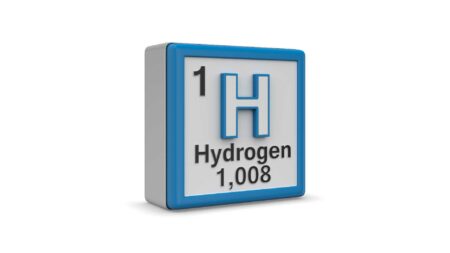The energy landscape is evolving at a rapid pace, driven by the urgent need to address climate change and reduce our reliance on fossil fuels. One critical aspect of this transformation is the heating of single- and multi-family homes, traditionally powered by fossil natural gas. As we bid farewell to the era of carbon-intensive energy, the question arises: Can green hydrogen become a sustainable alternative for residential heating? According to the German Gas and Water Association (DVGW), the answer is a resounding “yes.”
Browsing: Report
Italy is at a pivotal crossroads in its quest to establish a presence in the burgeoning hydrogen market. While the country has taken initial steps towards embracing green hydrogen as a key driver of decarbonization, several challenges and opportunities lie ahead.
India’s aspirations for green hydrogen production, a key element of its decarbonization strategy, face significant challenges, warns a report by Climate Risk Horizons. This article delves into the hurdles and potential consequences.
In an era where the demand for clean and sustainable energy sources is paramount, the integration of nuclear power and hydrogen production has emerged as a promising solution to boost profitability and transform the energy landscape.
Duisburg, a city steeped in industrial history and once known for coal, is now emerging as a key player in the new industrial revolution – one driven not by fossil fuels but by green hydrogen. Alexander Klomparend, head of corporate communications at Duisburg Kontor, is unequivocal in his belief: “Hydrogen is the new coal.” The city’s unique attributes make it a potent candidate to lead this revolution.
Kenya stands at the forefront of a revolution that promises to redefine not only its energy landscape but also its economic prospects. At the heart of this transformation is the embrace of green hydrogen technology, an innovative approach to producing clean energy and mitigating the impact of climate change.
Scotland is on the brink of a hydrogen revolution, and the world is watching closely as the Scottish Hydrogen and Fuel Cell Association gathers in Aberdeen this week. With significant support from the Scottish Government, including a £90 million Green Hydrogen fund, the hydrogen industry in Scotland is set to flourish, bringing with it not only cleaner energy but also substantial economic opportunities.
As the world grapples with the urgent need to combat climate change, Pennsylvania is at the forefront of the clean energy revolution, aiming to cut carbon pollution and embrace hydrogen as a key solution. The Biden administration’s pledge to invest $1.6 billion in hydrogen hubs partly located in the state has sparked both optimism and uncertainty. While clean hydrogen offers promise, the details of its production and impact remain shrouded in secrecy.
The world is at a critical juncture in the fight against climate change, and the Transatlantic Clean Hydrogen movement Coalition (H2TC) has emerged as a beacon of hope in the transition towards a sustainable energy future.
China, the world’s largest producer of greenhouse gas emissions, has emerged as a key player in the quest for carbon neutrality. To achieve its ambitious goals, the country is harnessing its vast resources and technology to revolutionize its energy sector. One of the central pillars of this campaign is the development of the hydrogen energy industry, a promising clean fuel source with the potential to significantly reduce carbon emissions, particularly in sectors that are challenging to electrify.











